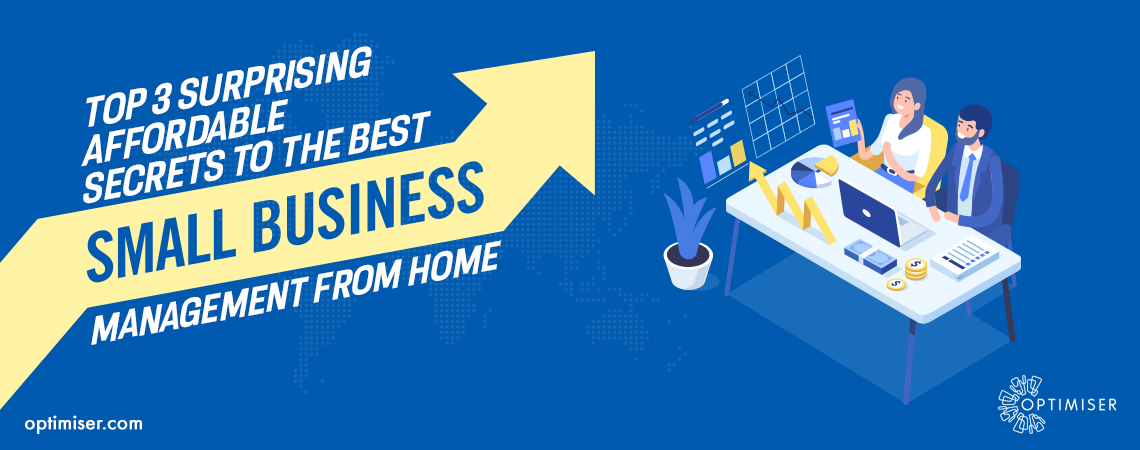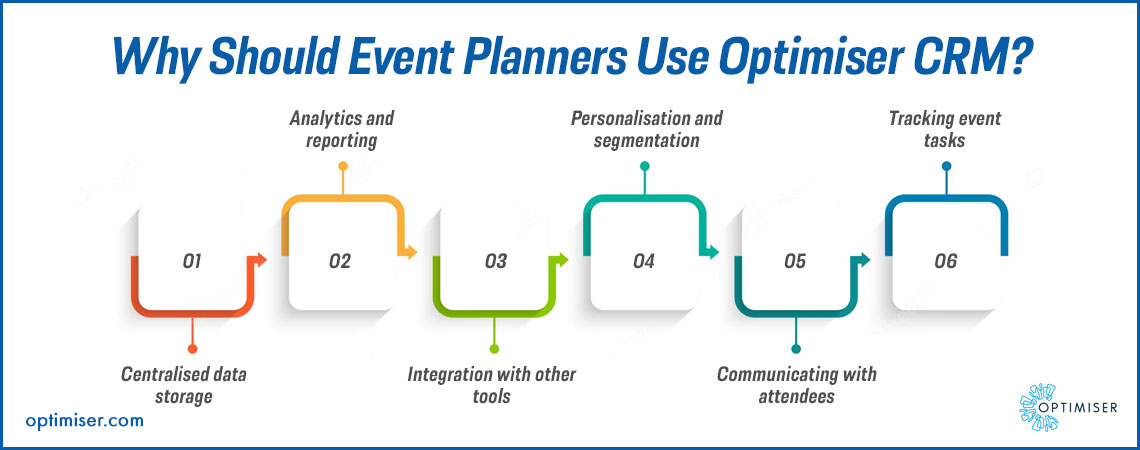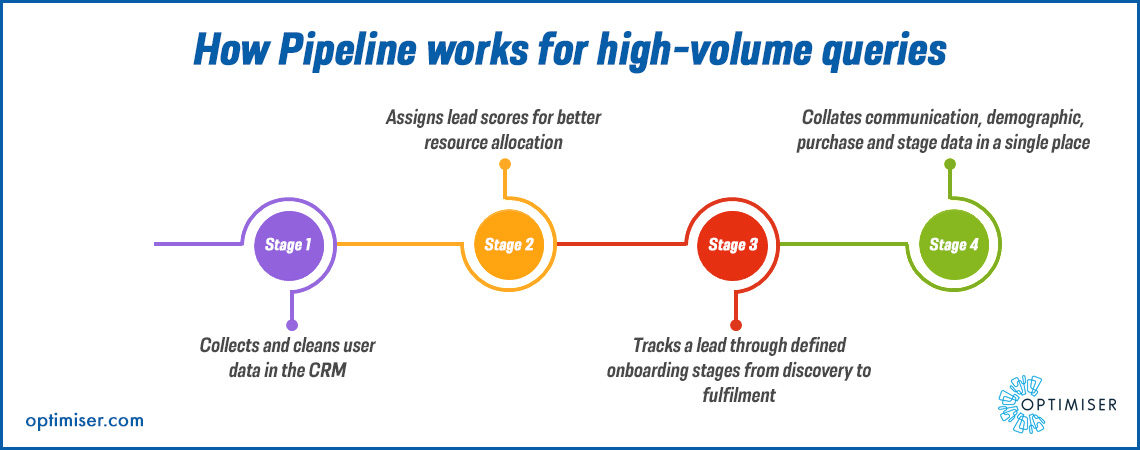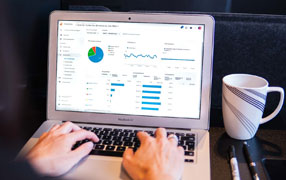
CRM for Small Business
Top 3 surprising affordable secrets to the best small business management from home
Menu:
Just how big was the virtual small business boom?
What can small business owners do to sustain and handle their rapid growth?
2- What your data is telling you
3- Managing hundreds of new customers
It might not seem like there’s an economic bright side to the global Covid-19 pandemic, but after bringing most of the world’s economies to their knees in 2020 and 2021 it is small, independently-owned businesses and home innovations that have carved out their own space in which to thrive.
In fact, there has never been a more opportune time for small businesses and startups. Thanks to the online workplace, businesses have pivoted to require zero contact hours while still thriving. Small businesses are naturally more adaptable in the face of change and resilient to large industry fluctuations, from consumer trends to operational procedures
This is thanks to innovations in the cloud and advancements in business management software and delivery management software, making it more affordable and realistic for a low-budget company to utilise state of the art technology. Ecommerce sites allow small businesses to operate from home, accept payments, manage orders and handle bookings or reservations.
“The virtual space is ripe for innovation and I doubt the overriding trend will be homogeneity,”
- Nikki Freihofer, The Culinary Edge
Just how big was the virtual small business boom?
The pandemic had a drastic effect on the way people were shopping for their produce. More than ever, retail space was not a factor in the likelihood of a business’s success. Large and small businesses were competing on the same digital marketplace as people shifted to online buying: food retailers found a leap to e-commerce shopping of over 300% at the beginning of the Covid-19 crisis
``The pandemic suddenly and profoundly changed online grocery shopping''.” (Supermarket News)
Not only this but in 2021 physical retail stores are still finding footfall is down by as much as a third. Market research firm, Euromonitor International, estimated that by as little as 2025, there could be a further 5% reduction of products being bought in store: from 81% to 76%.
Furthermore, Euromonitor International predicted that virtual or “locationless” brands and delivery-only businesses could be a one trillion dollar industry by as soon as 2030- indicating a real and lasting change in the way people like to shop
It’s over one thousand times cheaper to launch a business in 2021 than it was in 2006. Thanks to platforms like Gofundme, Indiegogo and other crowdfunding applications, a great idea with the right publicity can grow wings and launch to major successes entirely virtually and without the need for strong industry connections. Learning how to market a home business is more about authenticity, value and heart than trying to compete with the big leagues.
What can small business owners do to sustain and handle their rapid growth?
As overwhelming as it may feel to receive so much attention as a small business owner, this pivot toward innovation, creativity and unique small business offerings can only be described as a very good thing!
Small businesses are in the unique position of adapting quickly to trends and communicating personally with customers. That’s why finding out how to market a virtual business is a must.
You don’t need to rush to spend all of your operating costs on lots of high-tech business software, but sustaining growth is all about careful time management. By optimising time resources and making your data use more efficient, the implementation of software can actually increase your total revenue! Sounds counterintuitive, but it’s true.
Finding the right order management system for small business can be a game-changer.
Customer Relationship Management (CRM) software is the first start we’d recommend for total newbies to the business software game.
For those who have just started up their small business with little knowledge of business growth, here’s one for you: truly effective business growth happens from nurturing existing customers. On average it is 10x cheaper to retain an existing customer than to onboard a new one, and so any cost-effective strategy will hold this at its core.
What does CRM do?
CRM software seeks to improve the way businesses manage relationships with their customers (the clue’s in the name!)
.jpg)
The software bundle contains several smaller individual tools that make up the core business and customer management: cloud-based team and individual Calendar, thorough Contacts and Accounts records, sales management tool Pipeline, and an Analytics function to provide reports on company performance.
What does an order management system do?
The Pipeline tool in the CRM system will help you manage a high volume of incoming orders from new and existing customers by separating them into individual lead funnels to track fulfilment. Certain repetitive and time-consuming parts of the order fulfilment process can be automated to remove the need for manual intervention, saving valuable time on order and shipping confirmations.
Find out more about the benefits of CRM over manual management here.
2- What your data is telling you
Built-in to the CRM system are business analytic tools: some of the most important features of any good business software. It’s difficult to convey just how vital analytics and data are to operating a successful business: see Facebook and Amazon’s effective (if slightly controversial) use of customer data and you’ll gain some idea of the sorts of things you could be doing.

On a smaller scale, data analytics help you to better understand what customers are finding valuable about your business; how they are discovering you; who your customers are; how long it takes between discovering your brand and making a purchase; or what is stopping failed leads from becoming customers.
When analysed accurately, this data can:
- Help allocate resources more effectively
- Patch leaks in your customer funnel
- Help locate a purchasing audience
- Identify new leads most likely to make a purchase
- Inform marketing strategies
3- Managing hundreds of new customers
Tracking systems are the final module of the CRM that boosts successful small business management and growth strategy. Optimiser’s project and lead management tool is called Pipeline: a core element of the CRM that tracks linear projects from start to finish.

Alongside delivery scheduling software for small business, the pipeline ensures orders, queries and bulk purchases are processed and fulfilled in an organised and optimised manner.
Previous data reports collected by pipeline analytics inform an optimised current strategy. These reports also highlight the parts of each process that are repetitive and can therefore be automated. Automations in the pipeline govern these manual processes without the need for manual intervention: effectively improving ROI and resource use.
Optimiser is a comprehensive CRM software company, providing businesses a customisable solution to their personal goals for sales, productivity, and growth. Powerful integrated modules include lead management software, a B2B sales toolkit, automated marketing suite and more for sale under a single subscription. Try Optimiser’s CRM software demo with access to the full Enterprise Licence FREE for 30 days, and find out how you can skyrocket productivity in just one month!

30 days free trial. No credit card required
 One powerful platform
One powerful platform
 Simple to use
Simple to use
 Comprehensive
Comprehensive



